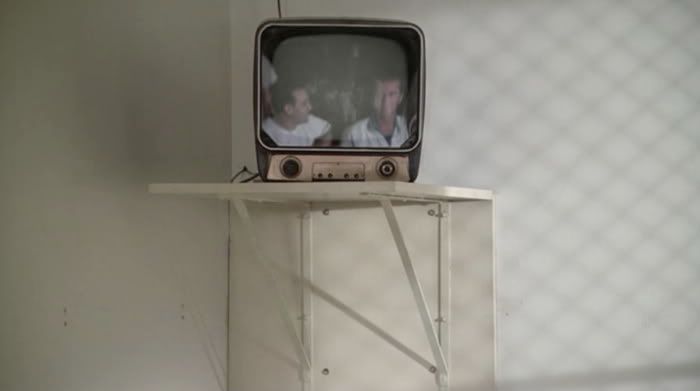Flashback Friday: 1975

1975: One Flew Over the Cuckoo's Nest released
During the span of years being covered during this Flashback Fridays endeavor, few clusters of pop culture loom larger than nineteen-seventies cinema. It's widely considered the last Golden Age of movies, and arguably the apex of daring creativity for American directors. The hangover from the dissolution of the studio system, the influence of European rule-breakers, the sudden freedoms regarding the raciness of content (compounded by the keen audience interest is seeking out such fare), the endless tumult in the country, the ongoing imperative to distinguish film from the handier option of television all conspired to open up the possibilities of movie-making like never before.
And I always think of One Flew Over the Cuckoo's Nest as the beginning of the end of that era.
I don't mean that as a disparagement of the film, which I think is excellent. And I'll gladly concede the aptness of singling out more commonly cited triggers Jaws and Star Wars for providing the guideposts that led to Hollywood's indefatigable blockbuster mentality. Part of my perception is simply due to matters of chronology. The big shark movie came out the same year, and while there were redefining masterpieces still pending, an undeniable shift away from risk was beginning. But part of it is built right into the film. It is dark and sly and unyielding in the manner of its most accomplished seventies cinema brethren. It also has a polish that just feels different, an awareness of its own daring and accomplishment that's exemplified by Jack Nicholson's Oscar-winning, live wire turn as Randle Patrick McMurphy. It's probing and inventive work that is also colored by self-awareness, the constant sense of overt performance. That works perfectly for the character since McMurphy is perpetrating a endless put-on, but it also edges the movie away from the naturalistic tendency that was of the most thrilling distinguishing aspects of the riveting accomplishments of preceding years. If Jaws signaled how summer tent poles would look from there on in, Cuckoo's Nest was a forecast of future prestige fare.
The film's anti-authority streak is pronounced, but it also feels a little co-opted. The response to "What're you rebelling against?" is "Whad'ya got?" just as it was for Johnny Strabler two decades earlier, but where that was the mark of doomed coolness, it's starting to look a little like indifference in Cuckoo's Nest. Lashing back at the power structure is convenient trend, not a matter of spiritual self-preservation. It's what the film does because it's what films do. It's a little perfunctory.
I'm admittedly projecting somewhat. There's still a hunger there too, a kick of surprise that they're even allowed to make this sort of movie. Milos Forman is an inspired craftsman and every bit of that comes through. It's a movie that is deviously engaging. I remember putting it on as background in a college dorm room once and getting sucked into the movie entirely, homework and all other distractions set aside to the final, window-busting end. It didn't purposefully reshape anything. It was just a movie made with the best of intentions, with little commitment beyond creating something worthwhile. I might see its place (or at least my perception of its place) on a greater continuum, but I also see its scampish revelry in delivering a eulogy for the freedom of the human spirit.